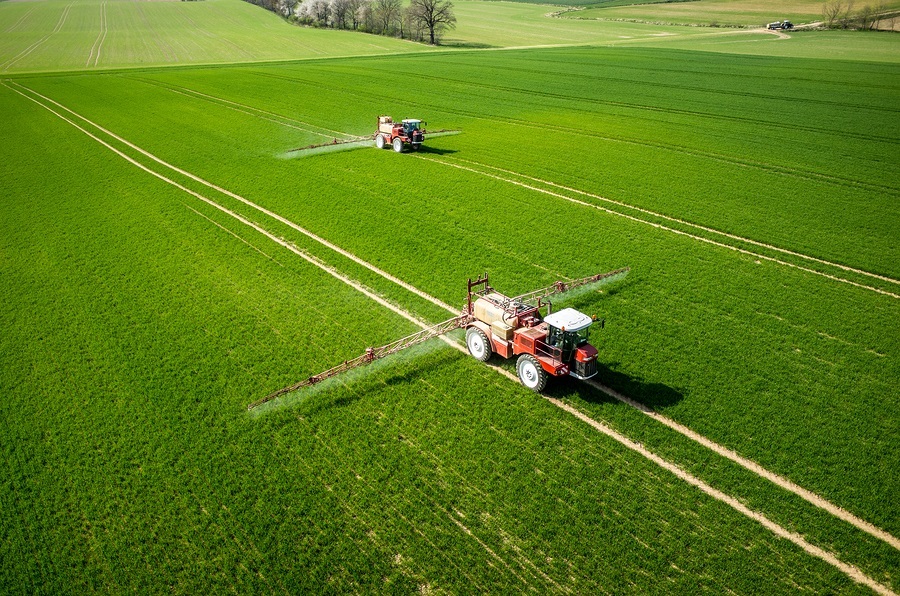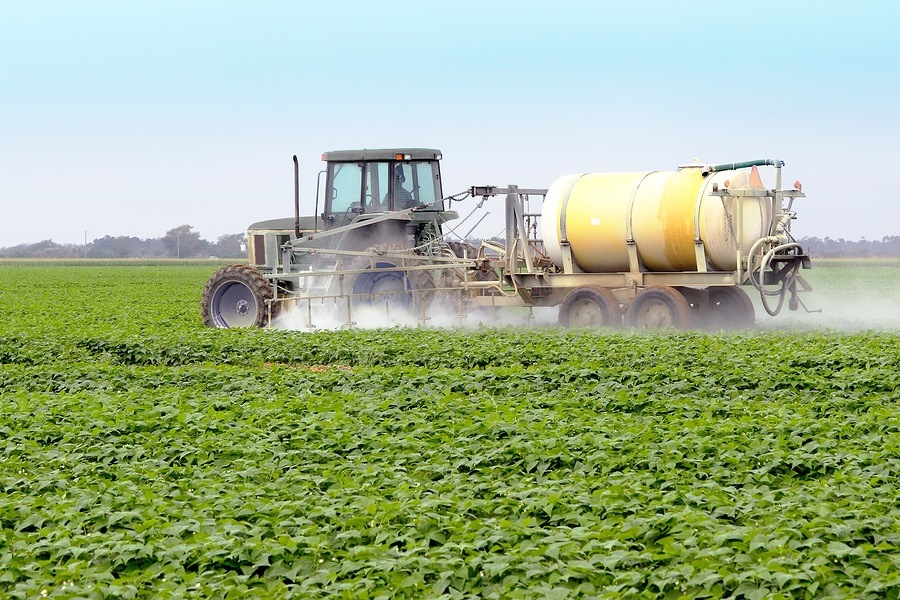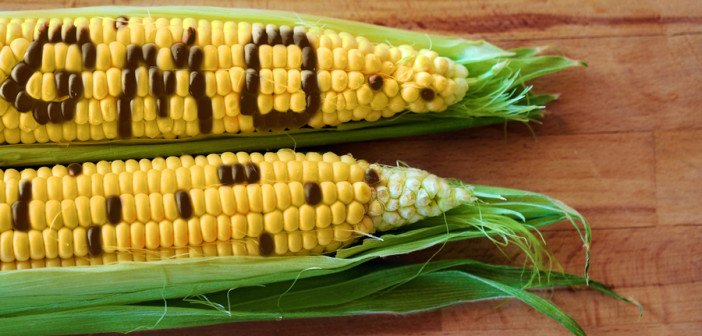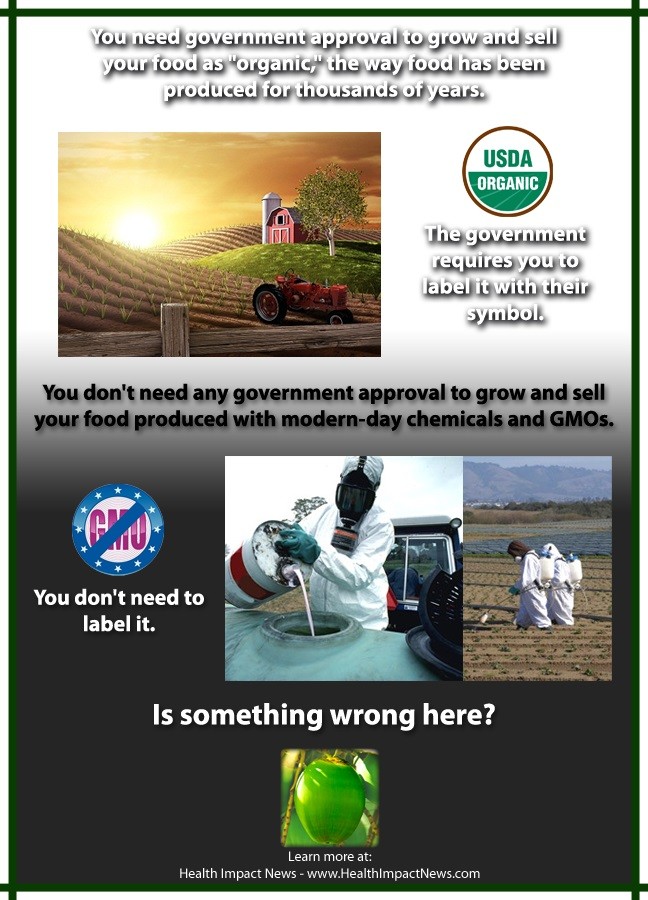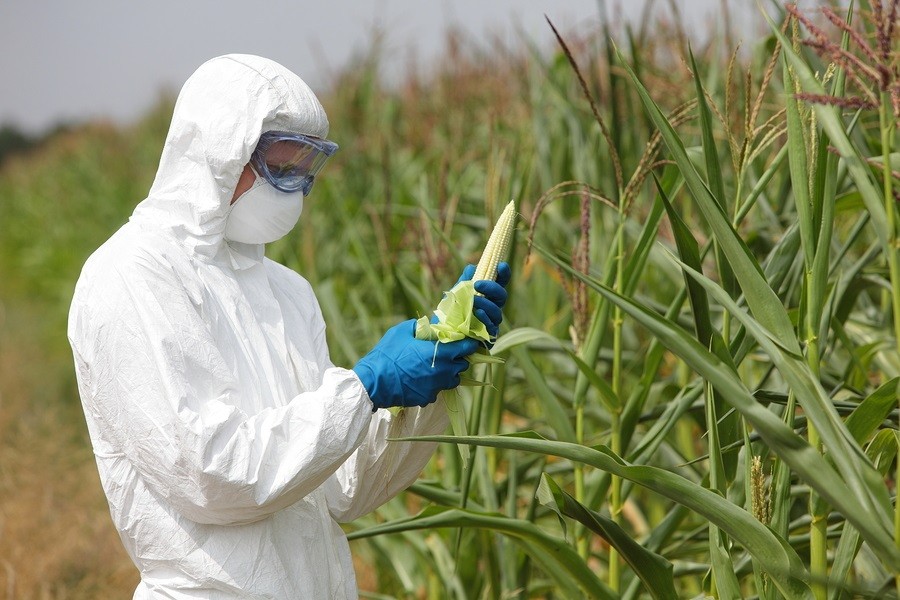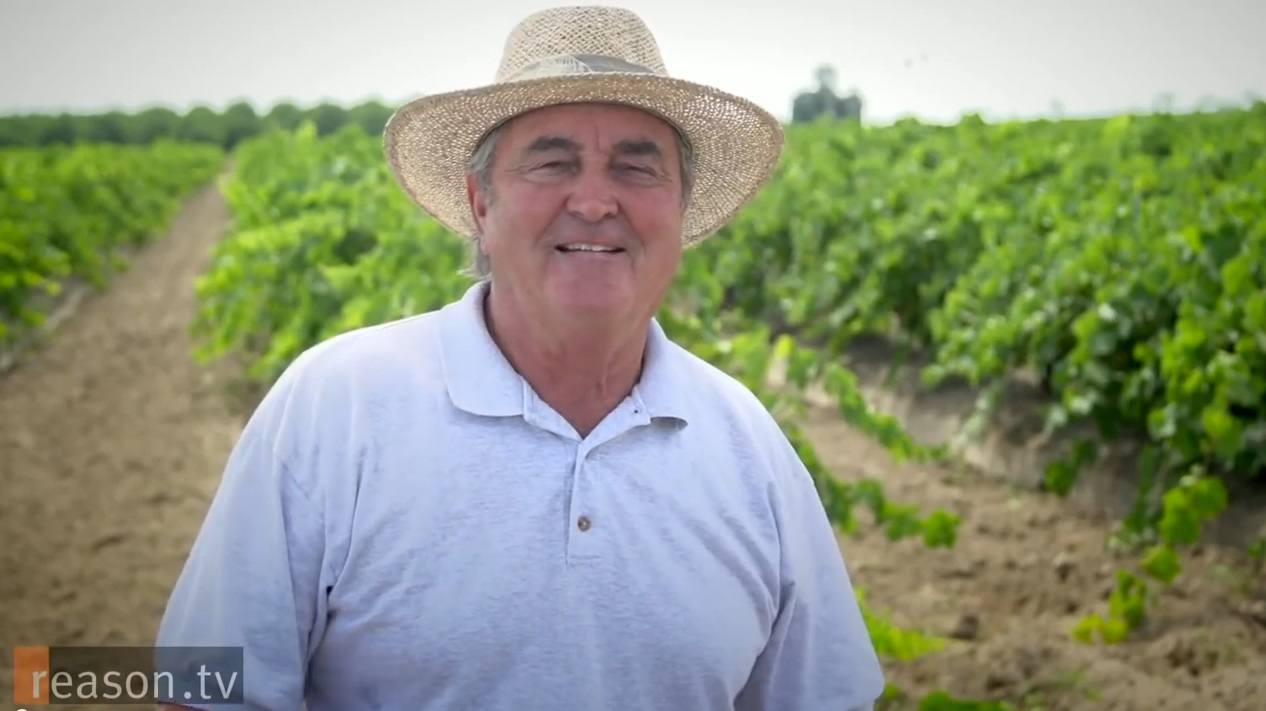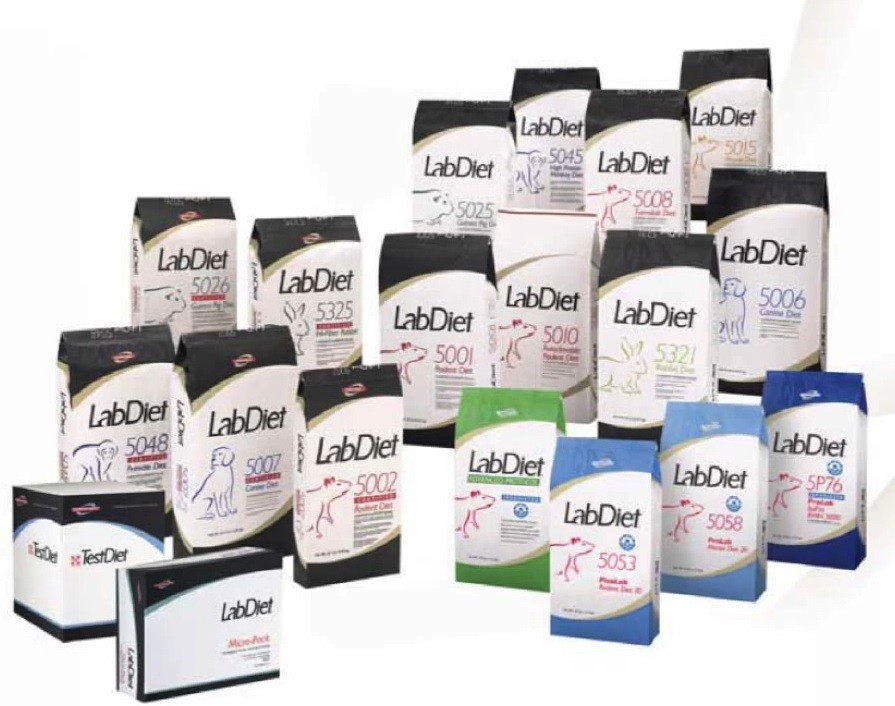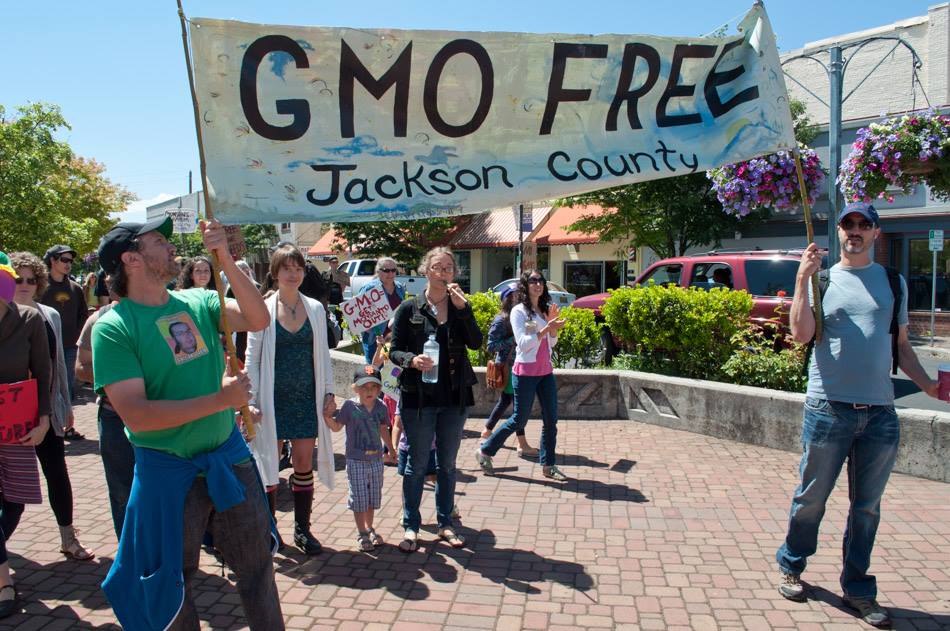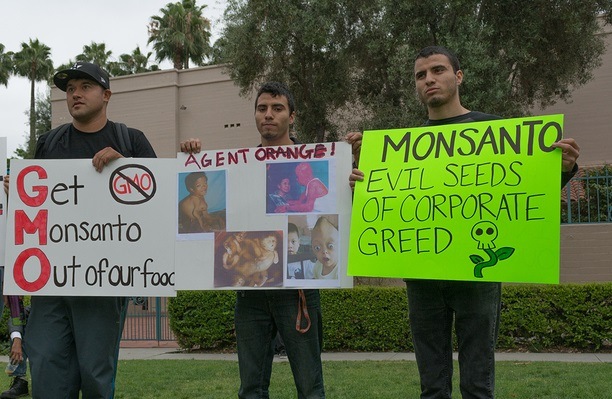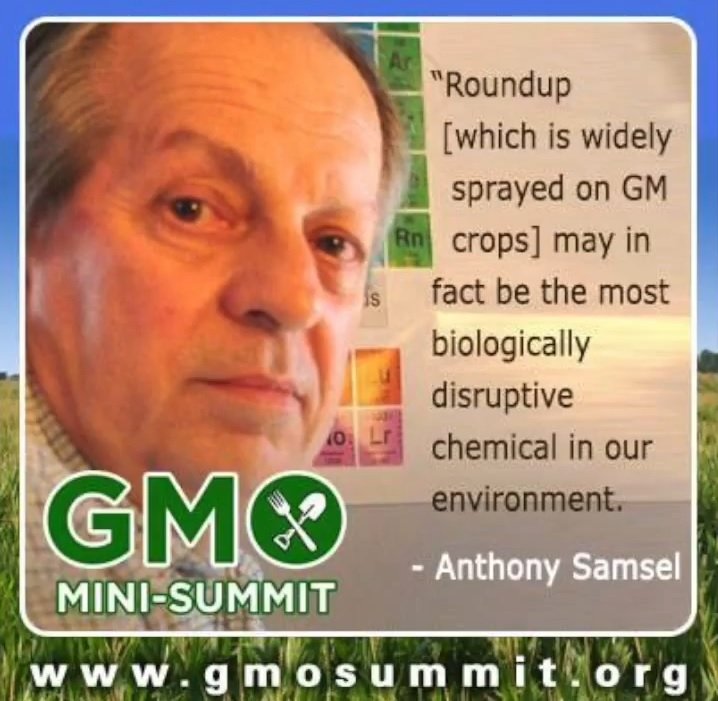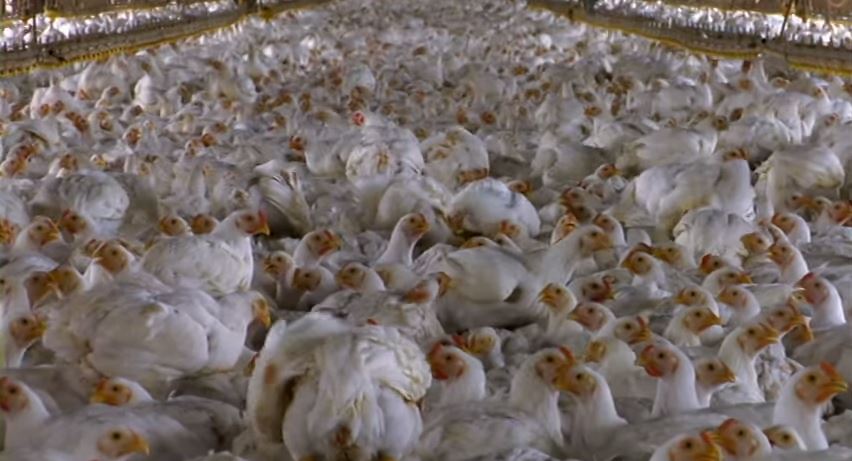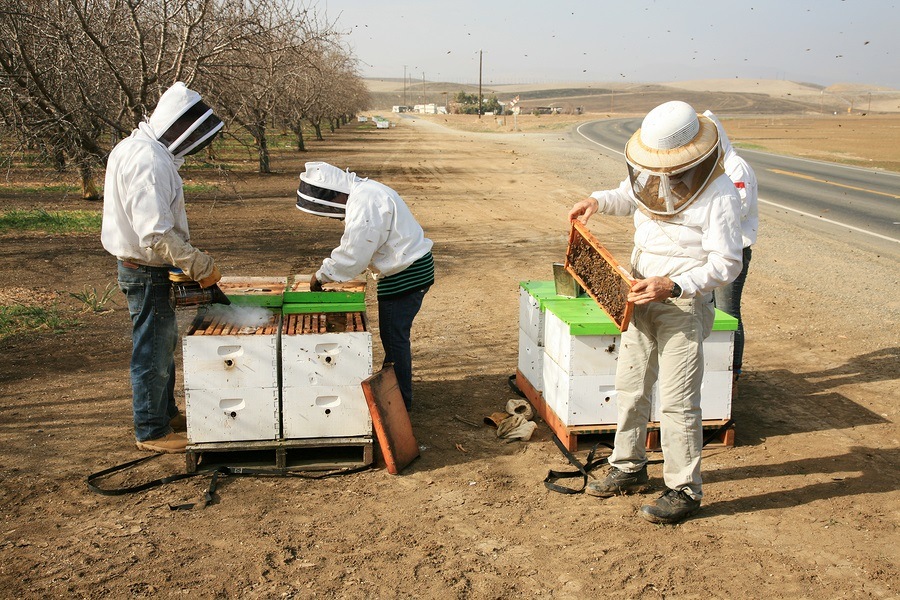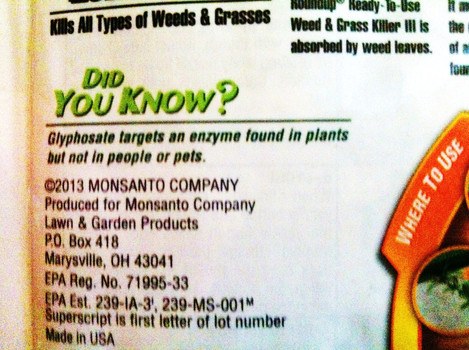News regarding the dangers of GMOs and biotech, and the advantages of organic sustainable agriculture.
Glyphosate Damages DNA says Cancer Researcher
Prof Christopher Portier, one of the co-authors of the recent report by the World Health Organisation’s International Agency for Research on Cancer (IARC), which determined that glyphosate is a probable carcinogen, said at a scientific briefing today, “Glyphosate is definitely genotoxic. There is no doubt in my mind.” “Genotoxic” means it damages DNA. It is widely believed by regulators that for genotoxic chemicals that are also carcinogenic, as glyphosate appears to be, there is no safe level of exposure.
First Glyphosate, Now Recently EPA-Approved 2,4-D Weed-Killer Also Linked to Cancer
The decision by an organization of the world’s leading cancer experts to classify the herbicide 2,4-D as a possible carcinogen underscores the risk posed by the U.S. government’s recent approval of 2,4-D for use on genetically engineered, or GMO, crops. 2,4-D is one of the two active ingredients in Enlist Duo, a toxic weed-killing cocktail marketed by Dow AgroSciences, which the U.S. Environmental Protection Agency recently approved for use in 15 states. The other herbicide in Enlist Duo is glyphosate, which the international cancer agency had previously classified as “probably carcinogenic.” Exposure to both chemicals has separately been linked to non-Hodgkin lymphoma.
Human Breast Milk Found Unsafe – High Levels of Glyphosate
The Green party made their warning after testing the breast milk of 16 women from a variety of German regions. Traces of glyphosate, a chemical used in weed-killers, amounting to between 0.210 and 0.432 nanograms per mililitre were recorded. In drinking water a quantity of no more than 0.100 nanograms of the substance is allowed. Irene Witte, professor of toxicology at the University of Oldenburg described the findings as “intolerable.” “I would never have guessed that the quantities are so high,” she said.
“DARK Act” Will Block States from Banning GMO Crops
Rep. Mike Pompeo’s voluntary GMO labeling bill has been amended to include another brazen giveaway to Big Food and the biotech industries. We’ve been closely monitoring the progress of the bill introduced by Rep. Pompeo (R-KS) and backed by industry. It’s titled, deceptively, the “Safe and Accurate Food Labeling Act of 2015”—and the news hasn’t been good. A few weeks ago, we reported that a Senate version of Pompeo’s bill was in the works while the House bill continued to gain co-sponsors and bipartisan support. Worse, a new draft of the Pompeo bill doubles down in pandering to the Big Food and biotech industries. In this revision, states and localities would be prevented from banning GMO crops. That’s right—states would no longer have any oversight over genetically engineered crops! Over the last few weeks, the bill has been continuing to gain momentum. Hearings on the measure have been held in the Energy and Commerce and the Agricultural committees, and a “mark-up” session is expected to happen soon, bringing the bill even closer to a vote.
Federal Government Does not Want You to Know if Your Food has GMOs in it
A current proposed federal law on GMO food would prevent States from passing their own GMO laws on labeling GMO foods. This past week, Scott Faber of the Environmental Working Group reported that Rep. Mike Pompeo's anti-GMO labeling bill, H.R. 1599, would also prevent companies from voluntarily labeling their products with non-GMO claims. Section 102 of Pompeo’s bill would make any non-GMO claim a violation of federal labeling law – unless the non-GMO claim was approved through a new certification program to be established by the U.S. Department of Agriculture. Under Pompeo’s bill, it could take the USDA at least a year, and more likely years to set up such a certification program. If you do not want the federal government forcing companies to stop voluntarily informing their consumers about whether or not their products have GMO ingredients in them, then urge your federal elected officials to oppose H.R. 1599 (and any Senate equivalent).
10,000 Sue Syngenta Over Unapproved GMO Corn Shipped to China – U.S. Farmers Lose $5 Billion in Sales
Town hall meetings have been taking place recently regarding corn litigation with the Syngenta company. The lawsuit is regarding claims that Syngenta sold genetically modified corn with a strain called MIR-162 to China without their approval of the modification. "The first shipment that tested positive for MIR-162," Hecker Law Group attorney Jacob Hecker said, "was destroyed by the Chinese in 2013. Afterwards all other shipments with trace amounts of the strain were sent back to where they came from." Due to the boycott, agriculture experts say the cost of the damages involved is in the range of $5 billion.
Supreme Court Rules Against USDA in Favor of Raisin Farmer and Property Rights
The U.S. Supreme Court today handed down their decision in USDA vs. Horne. They ruled against the USDA in favor of the Hornes, raisin farmers in California. The USDA set to make an example of the Hornes for opting out of the price-fixing scheme, slapping them with about $1 million in fines and threatening their small farm. The farmers sued, claiming that packaging and selling their raisins themselves rather than turning them over to the government pool made them “producers,” not “handlers,” and, therefore, not subject to the government rules. The 8-1 decision was written by Chief Justice John Roberts, with the court's more conservative justices in solid agreement. Roberts said the government violates citizens' rights when it seizes personal property -- say, a car -- as well as real property such as a house. While the government can regulate production in order to keep goods off the market, the chief justice said it cannot seize that property without compensation.
Glyphosate Cancer Cover-up: Control Animals in Studies Also Ate Glyphosate-Contaminated Food
Dr. Anthony Samsel was interviewed in 2015 by Tony Mitra, where he discussed certain documents he has in his possession from the Environmental Protection Agency (EPA) that allegedly show Monsanto knew about research connecting glyphosate to cancer since the 1970s. In this follow-up interview, Dr. Samsel discusses how the rat chow used in the laboratory feeds he analyzed were all contaminated with glyphosate. This is significant, as it means standard rat chow used in scientific studies have probably been contaminated since they started using GMO feeds that had been sprayed with glyphosate.
France Bans Sale of Monsanto Herbicide Roundup in Garden Centers
French Ecology Minister Segolene Royal announced today a ban on the sale of popular weedkiller Roundup from garden centres, which the UN has warned may be carcinogenic. The active ingredient in Roundup, glyphosate, was in March classified as "probably carcinogenic to humans" by the UN's International Agency for Research on Cancer (IARC). The weedkiller, used by amateur gardeners as well as farmers, is the star product of American biotechnology giant Monsanto. "France must be on the offensive with regards to the banning of pesticides," Royal said on French television. "I have asked garden centres to stop putting Monsanto's Roundup on sale" in self-service aisles, she added.
Supermarket Chains in Europe to Remove Glyphosate Weed Killer from Shelves
Swiss supermarket giants Coop and Migros have announced that they will no longer sell products that contain glyphosate, following the World Health Organization’s report stating that glyphosate is a probable human carcinogen. They have also announced that they will be exploring non-toxic alternative weed-killers. Coop’s and Migros’s decisions followed German giant retailer REWE Group’s decision, announced in early May, to remove glyphosate herbicides from the shelves of their 350 ‘toom Baumarkt DIY’ starting in September.
Oregon Grass-fed Ranchers Face Criminal Charges for Grazing Animals
The latest from Paradise Ranch: The judge has ordered that all the animals we are charged with neglecting be forfeited unless we pay a bond of $39,780 by 4 p.m. Pacific time, Thursday, June 11. Unless we come up with the money by that time, 35 of our animals (cows and their calves, yearlings, and a boar) will be forfeited. On Tuesday, January 27, 2015 we became accused criminals. The Union County Sheriff’s Department served us with a search and seizure warrant after several animals died over an extended period of time. The next day, they confiscated every head of livestock from our Summerville, Oregon property on the grounds of “criminal neglect”—but nothing more specific than that. They stole our breeding boar and sow, 6 mules, 5 horses, 23 yearling calves, 2 bulls, 4 steers, and 43 cows. The mother cows represent years of genetic selection for cows that will do well living on pasture and eating only grass. Almost all of our mother cows, all of our future beef, and hog breeding stock were taken. This is the majority of our livestock. Prior to the seizure, law enforcement had not presented us with any specific concerns that they wanted to see addressed. They did not work with us to have a veterinarian come on the property to assess our animals. They did not ask to see our hay purchase records to confirm how much hay we were buying and feeding. They had never cited us for lack of appropriate care for our livestock. This led us to think we were meeting their expectations. But in a matter of hours, they took our past, present, and future.
All Eyes on Jackson County Oregon as GMO Ban Survives Legal Challenge and Takes Effect
This past weekend (June 6, 2015) a historic ban on growing GMO crops went into effect in Jackson County, Oregon. The ban was the result of a ballot initiative in 2014, where citizens voted overwhelmingly to ban the growing of GMO crops in Jackson County, Oregon, by a 65.9% to 34.1% measure. This was seen as a significant victory, since the corporate opposition to the GMO ban spent over $1 million to try and defeat the measure. Just after the GMO ban ballot initiative was passed, two GMO alfalfa farmers sued Jackson County saying the GMO ban would cause them undue financial hardship and violated their constitutional rights. But a federal judge rejected their request to block the ban on May 30th. U.S. Magistrate Judge Mark Clarke ruled that the GMO ban is not pre-empted by Oregon's "right to farm" law. Non-GMO farmers now seem to have a clear path to sue GMO farmers if their crops are contaminated by GMO crops in Jackson County, which would be a first in the U.S.
Monsanto Funds “Reporter Boot Camp” for Food Journalists
The Washington, DC-based National Press Foundation announced that they're taking applications for an upcoming all-expenses-paid journalism conference called "Food, From Farm to Table." The conference promises to "take a holistic look at the issues: hunger, food waste, organic, GMOs, food science, feeding the world’s growing population, and more." That's cool, if you don't mind that one of its major sponsors is Monsanto, that the program includes a visit to the controversial agrobiotech company's research labs, or that this sounds a whole lot more like a press junket than a journalism conference.
Glyphosate Causes Cancer: EPA “Trade Secret” Sealed Files Reveal Cancer Link Known Back in the 1970s
In 2015, Dr. Anthony Samsel was interviewed by Tony Mitra, where he discussed certain documents he has in his possession from the Environmental Protection Agency (EPA) that allegedly show Monsanto knew about research connecting glyphosate to cancer since the 1970s. Dr. Samsel states that the documents he received from the EPA are "trade secret" documents belonging to Monsanto. These documents allegedly are safety studies about glyphosate from the late 1970s to the early 1980s, and others beyond those dates. Monsanto allegedly asked the EPA to seal these documents as "trade secrets" so no one else could review the data from these studies. Dr. Samsel stated that he is still sifting through all the data from these sealed documents, and that he is about to write a paper on glyphosate and cancer. He states that these "trade secret" documents are documents that Monsanto had the EPA seal so that nobody could revisit the data. According to Samsel, these documents show: "unequivocally, that glyphosate causes cancer. Should it be on the market? No. Should it be in our food? No." He states that taking glyphosate off the market will not necessarily solve the problem if they substitute it with another herbicide. "No herbicide belongs in our food. Whether it is 2,4-D, Dicamba, Glufosinate.... there should be no herbicides in our food because it disrupts our bacterial homeostasis, and it disrupts our immune system. When we disrupt our bacteria and the microbiota within us, disease ensues. Disease begins with the destruction of our microbiome."
Avian Flu Outbreak Among Chickens—How Long Can we Continue this Failed Food System?
Three large egg-producing states in the US are in the midst of an avian flu outbreak. Iowa declared a state of emergency on May 1. Minnesota and Wisconsin declared states of emergency last month. It’s estimated that 25 percent of all chickens in Iowa have been infected, and millions of chickens and turkeys in the three states have already been killed in an effort to contain the disease. This outbreak is really not surprising. In fact, it's exactly what you can expect when you dramatically disrupt the natural order of things, and produce food under wholly unnatural circumstances. Confined animal feeding operations (CAFOs) are major warehouse-style growing facilities where animals are crowded together by the thousands, or in the case of chickens, tens of thousands. These animals are fed a completely unnatural diet of glyphosate-containing genetically engineered (GE) grains mixed with antibiotics—a surefire recipe for drug resistance and out-of-control spread of disease
Sri Lankan President Orders Immediate Ban on Glyphosate
Sri Lankan President Maithripala Sirisena today announced that the imports and release of the agrochemical Glyphosate will be banned with immediate effect. The President, who was the Health Minister of the former government, said the government has decided to totally ban the imports of Glyphosate, which is linked to the kidney disease, as the number of kidney patients was surging.
Study: Over 40% Of U.S. Bee Colonies Died Past Year – Situation “Unheard Of”
The United States has lost more than 40% of its bee colonies this past year according to a new national survey. Oklahoma, Illinois, Iowa, Delaware, Maryland, Pennsylvania, Maine and Wisconsin all saw more than 60 percent of their hives die since April 2014, according to the survey. There can be no doubt that modern agriculture with its emphasis on GMOs and chemicals is a huge part of the problem. Dr. Don Huber has shown a connection between glyphosate, the active ingredient in the world's most common pesticide, Roundup, and bee colony losses.
Will Foods Contaminated with Glyphosate have to Carry a Prop 65 Cancer Warning to be Sold in California?
In late March, the International Agency for Research on Cancer (IARC), a division of the World Health Organization (WHO), determined that glyphosate—the active ingredient in Monsanto’s herbicide Roundup—is a Class 2 A “probable carcinogen.” This determination is nothing short of devastating to Monsanto and other chemical technology companies that rule our food supply, and recent “astroturf” attack on Dr. Oz reveals just how desperate they are to quell rising concerns. Not only is the IARC considered the global gold standard for carcinogenicity studies, it’s also one of the research agencies from which the California agency of environmental hazards gets its data to declare carcinogens under Prop 65. So, eventually, foods containing glyphosate will likely have to carry a Prop 65 cancer warning label to be sold in California.
Campaign Against Glyphosate Steps Up in Latin America
After the World Health Organisation (WHO) declared glyphosate a probable carcinogen, the campaign has intensified in Latin America to ban the herbicide, which is employed on a massive scale on transgenic crops. It is used not only on transgenic crops but also on vegetables, tobacco, fruit trees and plantation forests of pine or eucalyptus, as well as in urban gardens and flowerbeds and along railways. Stédile, who is also a member of the international small farmers movement Vía Campesina, hopes this region and Europe will ban its use in agriculture, as Mexico, Russia and the Netherlands have done. As an alternative, he proposed “agroecological production that combines scientific know-how with the age-old knowledge of peasant farmers, to develop crops without the use of poisons, suited to each ecosystem.” That methodology has increased “the productivity of the soil and labour, better than practices that use poisons,” he said.
Monsanto sued in Los Angeles County for False Advertising on Glyphosate Claim
On April 21, 2015 a class action lawsuit was filed in Los Angeles County, California against the Monsanto corporation. The suit alleges that Monsanto is guilty of false advertising by claiming that glyphosate, the active ingredient in Roundup, targets an enzyme only found in plants and not in humans or animals. Monsanto makes this claim to support the contention that glyphosate is harmless to humans. In the lawsuit, the argument is made that the targeted enzyme, EPSP synthase, is found in the microbiota which reside in our intestines and therefore this enzyme is found in humans and animals. It is further stated in the lawsuit that there are many human and animal health problems associated with the disruption of our intestinal microbes. Residents of California can become members of the class in this action.




